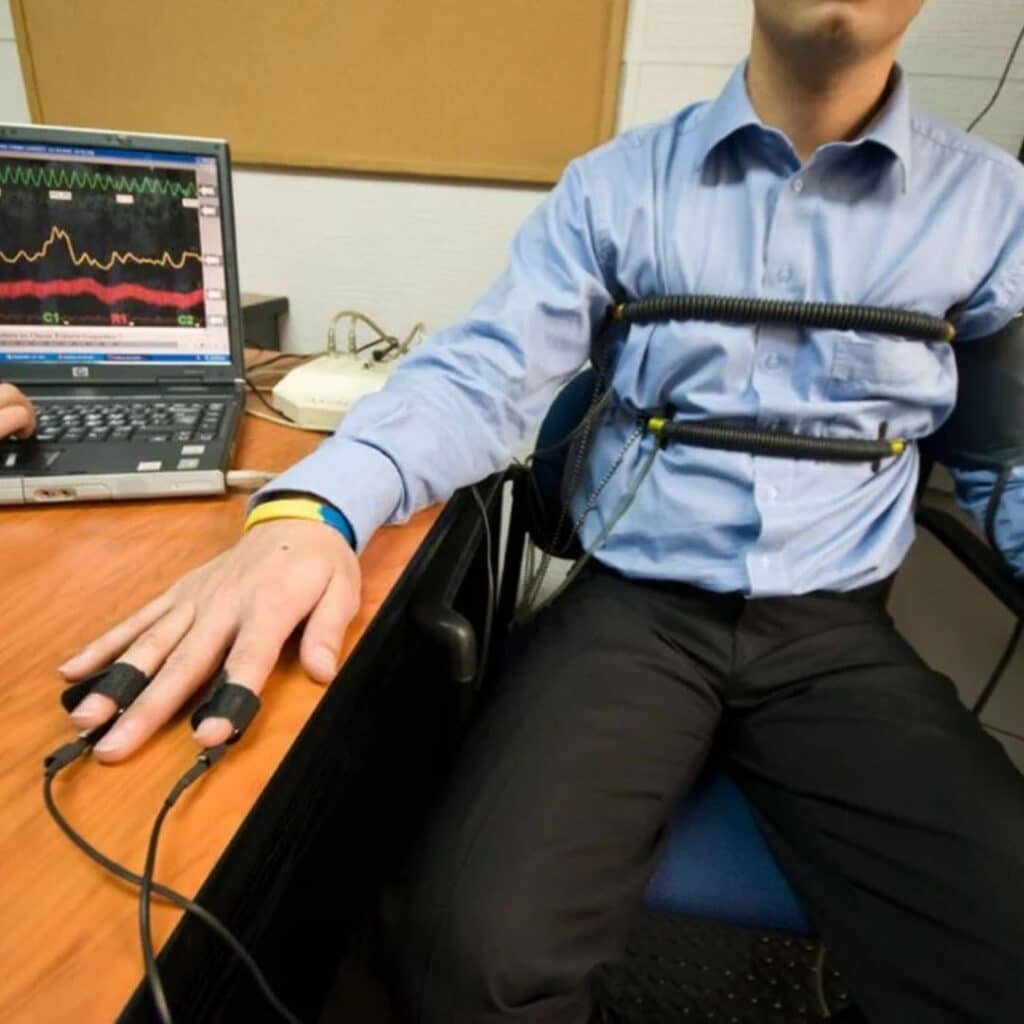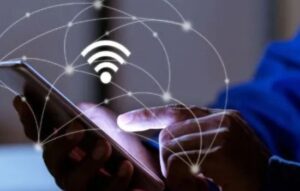Have you ever wondered if someone is telling the truth or hiding something? Nowadays, thanks to technology, there are apps that promise to do exactly that: detect lies. However, before you get too excited, it's important to know that these apps aren't as accurate as real lie detectors. Have fun with this lie detector simulation.
In reality, they're just simulation apps created to play pranks or simply have fun with friends. While the idea of having a lie detector on your phone may sound fascinating, it's important to understand that its purpose is more for entertainment than for serious purposes.
In this article, we'll discuss lie detector apps, detailing how they work, their features, and most importantly, how to use them responsibly. We'll explore how fun they can be and what to expect from them, while making it clear that they're not intended as serious tools for judging people's truthfulness.
What is a lie detector?
A lie detector, also known as a polygraph, is a machine used to measure and record various physiological responses, such as heart rate, respiration, and skin conductance, while asking a person a series of questions. The purpose of this machine is to determine whether the person is lying or telling the truth based on their physical responses. However, it should be noted that real lie detectors are not always accurate. Physiological responses can be influenced by many variables that have nothing to do with lying.
Now, applications like Lie Detector: Prank for Android and Lie Detector Scanner for iOS are based on this concept, but don't feature the technology of a real polygraph. These apps use sensors available on mobile phones to generate a simulation experience.
Features of simulation applications
1. Design and Functionality
These apps are designed to be simple and easy to use. Typically, you just need to open the app and place your finger on the fingerprint sensor or simply press a button to start the simulation. Users can start asking questions, and the "detector" will begin emitting sounds, lights, or displays indicating whether the person is "lying" or "telling the truth."
Although the interface varies between apps, the basic mechanics are the same: generate a fun simulation that suggests the person is lying based on a false analysis of their behavior.
2. Simulation of Responses
A key feature of these apps is the way they simulate the results. Although the person using the app may be telling the truth, the lie detector app could indicate otherwise, creating a comical or suspenseful atmosphere, ideal for pranking friends. No lie detector response should be taken seriously, as it does not realistically measure any of the physiological responses that a real polygraph would assess.
3. No Real Accuracy
It's important to emphasize that these apps are not scientific tools. The accuracy of a polygraph depends on several factors that mobile apps can't properly assess, such as skin electrical conductivity, heart rate, and respiratory rate. Apps like Lie Detector: Prank They don't seriously measure these parameters; they only simulate these processes for entertainment purposes. They shouldn't be relied upon to make important decisions or conduct truthful analyses of human behavior.
Common uses of lie detector simulation apps
1. Party Games
One of the most popular ways these apps are used is at social gatherings or parties. You can ask fun or compromising questions and see your friends' reactions when the app tells them they're lying. It's a lighthearted way to break the ice and have a good time with friends and family.
2. Innocent Jokes
Another common use is in pranks. If someone is playing a trivia game or doing a lighthearted activity, the app can be used to trick someone into thinking they're lying when they're not. However, it's important to remember that these types of pranks should be harmless and not cause discomfort or misunderstandings.
3. Have fun with the kids
These apps can also be fun for younger children, who enjoy simulations. Children may enjoy seeing how answers change when they ask questions, without fully understanding how real lie detectors work.
Considerations on the lie detector simulation
Although these apps are designed for fun, it's important to be aware of their limited purpose. They're not a serious tool for judging people's truthfulness, and the results they display shouldn't be taken seriously. Here are some key considerations when using these apps:
1. They do not replace the truth
It's essential that everyone understands when using these apps that the results are fake. A real lie detector isn't infallible, and even less so a mobile app. Using the app as if it can tell you whether someone is lying or not can be misleading and lead to incorrect conclusions.
2. Responsibility
If you decide to use a lie detector app in a social setting, it's important to consider the impact it could have on others. While jokes can be fun, you want to make sure no one feels uncomfortable or misunderstood because of a false lie detector result.
3. It is not a scientific tool
Simulation apps shouldn't be considered scientific or research tools. If you're looking to get accurate results about a person's behavior or intentions, you'll need much more advanced methods than entertainment apps.
How to use these applications properly?
If you decide to use an app like Lie Detector: Prank either Lie Detector ScannerHere are some tips to help you make the most of your experience without any misunderstandings:
- Use them as part of a social gameInvite your friends over to play a lighthearted game. You can ask fun questions and watch the "lie detection" process while everyone has fun.
- Don't take them too seriouslyAlways remember that the app is only simulating a lie analysis. Don't assume the app's answer is the truth.
- Don't pressure others to ask uncomfortable questionsWhile these apps can be fun, it's important to respect people's boundaries. Avoid asking questions that could put someone in an uncomfortable or compromising situation.
Conclusion
Applications such as Lie Detector: Prank for Android and Lie Detector Scanner for iOS are simulation tools designed for entertainment and fun, not to provide real-world analysis of the veracity of people's answers. While they can be a fun way to joke around or break the ice in meetings, it's important to remember that they shouldn't be taken seriously. When using them, make sure all participants understand that the results are completely fictional.
Don't let these app simulations become serious. Always remember that they're just for fun, and the true purpose of a lie detector lies in scientific studies, not mobile apps. Make sure you use them responsibly and enjoy the entertainment they offer without creating any misunderstandings.







